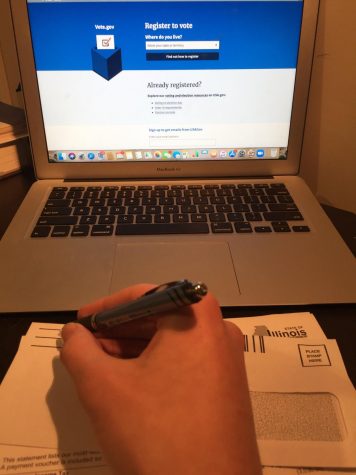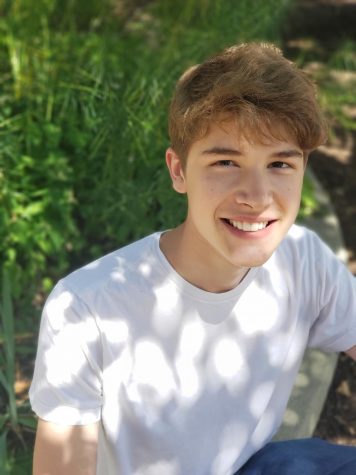Of votes and voices
Students share opinions on voting as election day nears

As a polarized election season brings us ever closer to November 3, seniors of voting age are reflecting on their ability to vote and what they will do with this newfound privilege.
Despite an unconventional election year, students like Morgan Davis, senior, say that younger generations will come out to vote in force. This is because of a rise of politics in social media, Davis says, which will likely lead to a larger turnout. Since this election is so crucial, Davis says younger generations need to act now to make a difference.
“We are a lot of people. We are a force. And we understand problems that older generations don’t think about as much as we do,” Davis says. “They don’t pay attention as much to what we have to go through — [whether] that be entering the workforce with fair pay and equality or college payments. We need to be working for what will make our generation’s lives better in America.”
Davis says she sees this motivation to improve the country’s situation for younger generations, but that there may be a downside to this passion. With students voicing their opinions on social media specifically, Davis warns that misinformation may become a dangerous influence in this election.
“People our age are definitely going to be turning out more so than normal since politicians this year have been very active on social media and that’s where people our age are the most involved,” Davis said. “But I think a lot of people are just uninformed. They’ll be making a decision based on either family opinions or things that they saw on social media, but they don’t actually know who stands for what.
This misinformation that Davis describes feeds into a phenomenon that caused Aiman Naqvi, senior, not to vote. Naqvi says that radical, uninformed opinions on both sides of the political spectrum have led to such polarization that he decided to sit out the election.
“I was scrolling on Instagram [after the presidential debate] and I looked at one story from someone on the left completely bashing Trump. And then the next person was completely bashing Biden [on their] story,” Naqvi said. “Then I turn on the news from CNN or Fox and it’s the same thing. I was just like, I can’t catch a break. My role doesn’t matter which way I vote, and that’s the very disheartening part about it. Whoever wins, the other side will be so upset, so filled with hate, that the country can’t really function regardless of the policy because there are so many people that are divided into opposite worlds.”
While Naqvi says he will not vote in this particular election, he says he still plans to vote in upcoming elections where debates are more civil and policy-based. The act of voting is still important, Naqvi says, and it is important that “our generation pays attention, and [that] we know what’s happening around us. Hopefully, we can create more unity within our generation in the next 10 to 20 years.”
That unity is something other students like Michelle Katz, senior, say they are striving for too. However, Katz says that other priorities are important to consider in this election, and a lack of unity should not dissuade students from voting altogether.
Voicing her generation’s view and vision is the main reason Katz says she is voting this year. While the “polarized, coronavirus infected country might not be at it’s best right now,” she says, “that doesn’t mean we shouldn’t fight for it. If we want to influence our country’s future, we need to get out there and vote and make our voices heard. There is too much at stake in this election to let it slip away.”

As a senior, this is Max’s third year on staff and first year as magazine editor in chief for the Bear Facts program. He aspires to study environmental...
